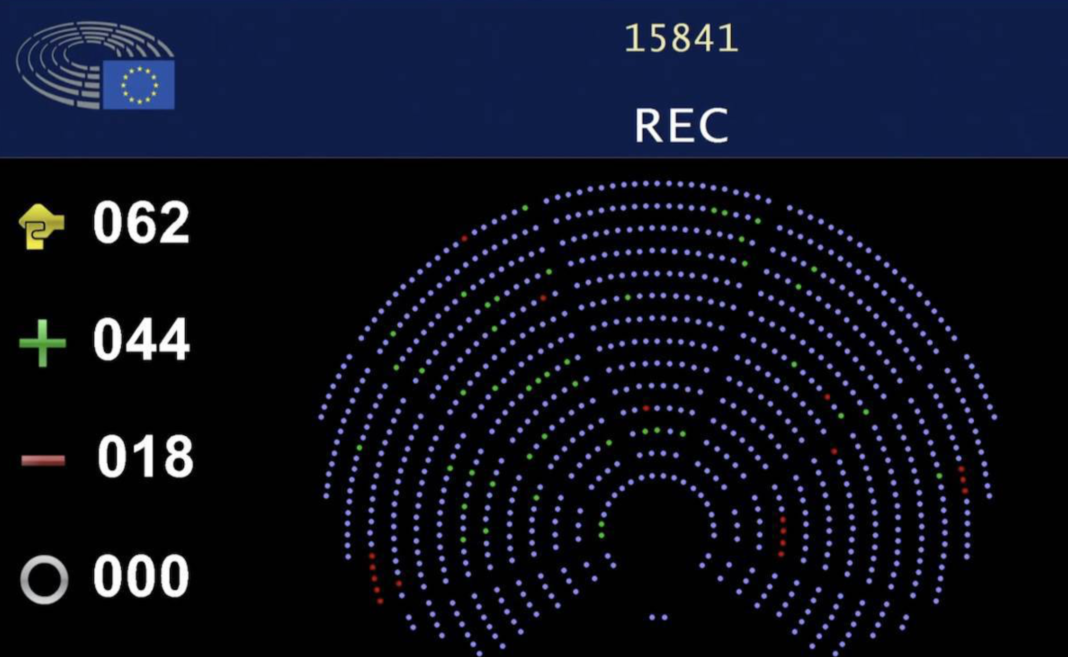According to the decision, if Kavala is not released by January 2024, the Turkish delegation will lose its voting rights in the Parliamentary Assembly of the Council of Europe. European countries will be able to initiate prosecutions against the individuals involved in Kavala’s imprisonment.
October 13, 2023, Bianet English.
The Parliamentary Assembly of the Council of Europe (PACE) has adopted the decision of « immediate release of Osman Kavala » with a 2/3 majority. 44 members voted in favor of the decision in the session, where 62 members cast their votes, while 18 members voted against it.
According to the decision, Turkey will face sanctions if it fails to implement the European Court of Human Rights’ ruling to « immediately release Osman Kavala » regarding his detention.
Among the most significant sanctions outlined in this decision are the implementation of the « Magnitsky Legislation » concerning public officials who are personally responsible for Osman Kavala’s unjust imprisonment and, if Osman Kavala is not released from prison by January 1, 2024, the activation of the authority to challenge the credentials of the Turkish delegation in the first session of 2024.
In simpler terms, if Osman Kavala is not released after this decision, despite « engaging with Turkish authorities, » then « everyone, including police officers, prosecutors, judges, prison officials, or others in positions of authority who have contributed to the illegal and arbitrary deprivation of freedom of Osman Kavala and other political prisoners in Turkey, » will face prosecution in European countries for their actions.
Secondly, if Osman Kavala is not released by January 1, 2024, the Turkish delegation will be deprived of its voting rights in the Parliamentary Assembly of the Council of Europe during the Winter Session of 2024.
What is Magnitsky legislation?
Magnitsky legislation refers to laws providing for governmental sanctions against foreign individuals who have committed human rights abuses or been involved in significant corruption. They originated with the United States which passed the first Magnitsky legislation in 2012, following the torture and death of Sergei Magnitsky in Russia in 2009. Since then, a number of countries have passed similar legislation such as Canada, the United Kingdom and the European Union.
Sergei Magnitsky was a tax accountant who accused Russian tax officials and law enforcement of stealing $230 million (~$288 million in 2021) in tax rebates from Hermitage Capital. He, in turn, was arrested and jailed under the accusation of aiding tax evasion. Allegedly beaten by police Magnitsky died in Matrosskaya Tishina detention facility in November 2009. In 2012, the United States Congress passed the Magnitsky Act.
On 7 December 2020, the European Union passed the European Magnitsky Act, which will allow the organization to « freeze assets and impose travel bans on individuals involved in serious human rights abuses ».
Among the criteria for sanctions are: genocide, crimes against humanity, torture, slavery, extrajudicial killings, arbitrary arrests, or detentions. The act establishes the following procedure to impose sanctions. Entitled to submit proposals for sanctions implementations, review or amendment are each of the member states and also the High Representative of the EU for Foreign Affairs and Security Policy. The decision is to be taken by the Council of the European Union.

